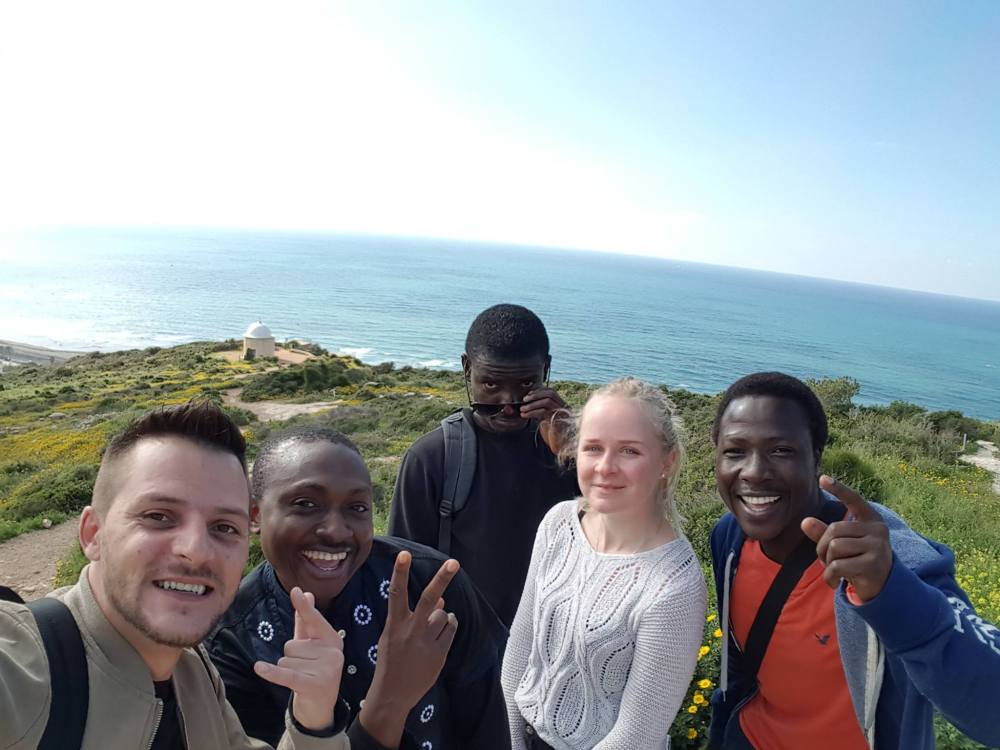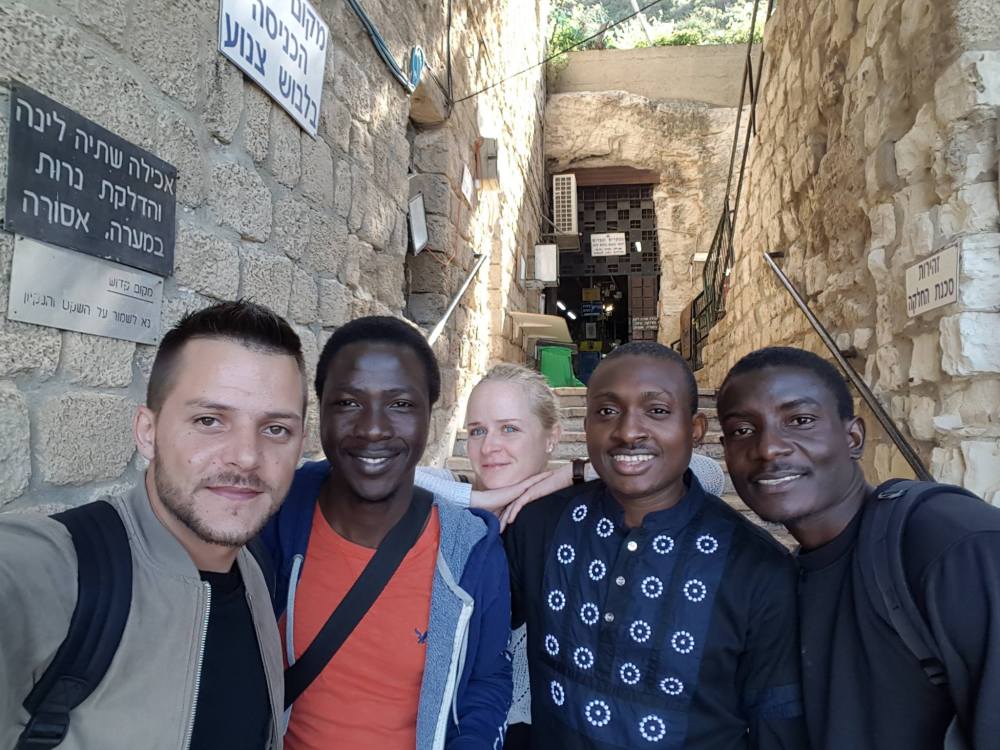By Boglárka Kormos, a student of MA program in Child Development, 2016-2017 Cohort.

We have a dance, a unique rhythm. Our group is pulsating; we sink into the deep water, and when consume our breath, we come up and paddle on the surface. This is how we work on Dr. Tirza Joels class.
The Emotional and Professional Development course a place where we can release the stress, where we can laugh and cry at the same time. It is also difficult – as my classmate Itozya Onesmo sees – because sharing our personal stories and revealing ourselves can make us vulnerable in the group.
“It was my first time when I cried in front of a group. I felt ashamed because I am a man, an African man, and in my culture men do not cry. But then I realized there is no need to feel ashamed. What I felt on the course – it had to be released,” Ityoza said.
“This course gives experiences how to communicate and participate in a group, additionally how to work with a group as a leader in the future. It gives an insight about its function, and I can use these skills back home in Tanzania, where I work with abused children. We have to find a way for emotions to come out, and resolve them.”
On the class we sit in a circle and Dr. Tirza proposes a question to us. Usually the questions and topics are sensitive so that the group immediately shows the “shoe effect” that is we start staring at our shoes as if we have never seen them before. It is hard to jump into the deep water and talk about feelings, but after a while someone always jumps.

“I have learned about myself new things,” Itozya continued. “When Dr. Tirza asked to think about a child who touched my heart, and whom I think about a lot, I could chose easily. The child’s name is Charles, and I feel him close to me, but I did not really understand why. His parents passed away, and he lived on the street when someone brought to my office in Tanzania. I saw the potential in him, and we were talking a lot, I also encouraged him to study. In that time, I had to leave my job. By the time I left, Charles disappeared, and could not find him anymore. After a long time when I was travelling through the country, I met him at the bus station, where he worked – he was carrying the passengers’ baggage. He did not study, and did not belong to anyone.”
“Now I see how things fell into place inside me during this class. While I was gradually opening my hidden thoughts and feelings in front of the group, Dr. Tirza made me realized this boy is me. Me as the disappointed, confused and hopeless child who I was in the past. As a child, I did not receive support, and could not trust in anybody, even if I needed it so much. I see myself in Charles who need help but neither could I help him, even if I really wanted to succeed. I feel like I failed.”
The group sank into the deep, and the time has come to come up to the surface.
“Not only from myself I can learn, but from the others and from different cultures. Others’ perspectives, thoughts and stories made me more respectful toward cultures.
Now I know that, in the early morning I better not to knock on Boglarka’s door and say loudly ‘good morning how was your night’ to her, because she wouldn’t be happy. In most of the African culture, we do it to everyone, but by now, I am acquainted with the concept of ‘not being a morning person.'”
We are building a bridge to each of the mixed cultures that we have in the group.
“Hearing the stories on Dr. Tirza’s class also makes me value my own culture, and myself. I have changed my perception about human beings, because we experience the same, no matter if we do it in Africa or in Europe, we experience fear, struggle, neglect and love, and now I am 100% sure we are all equal.”
